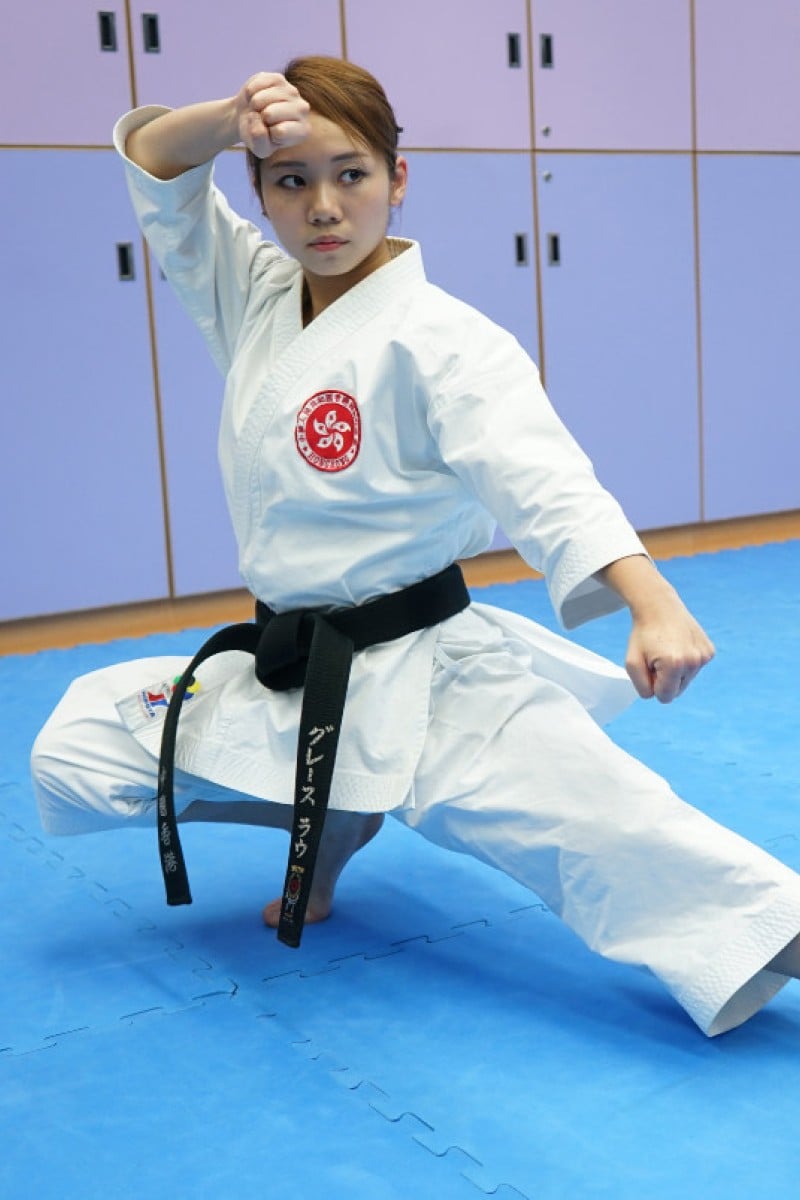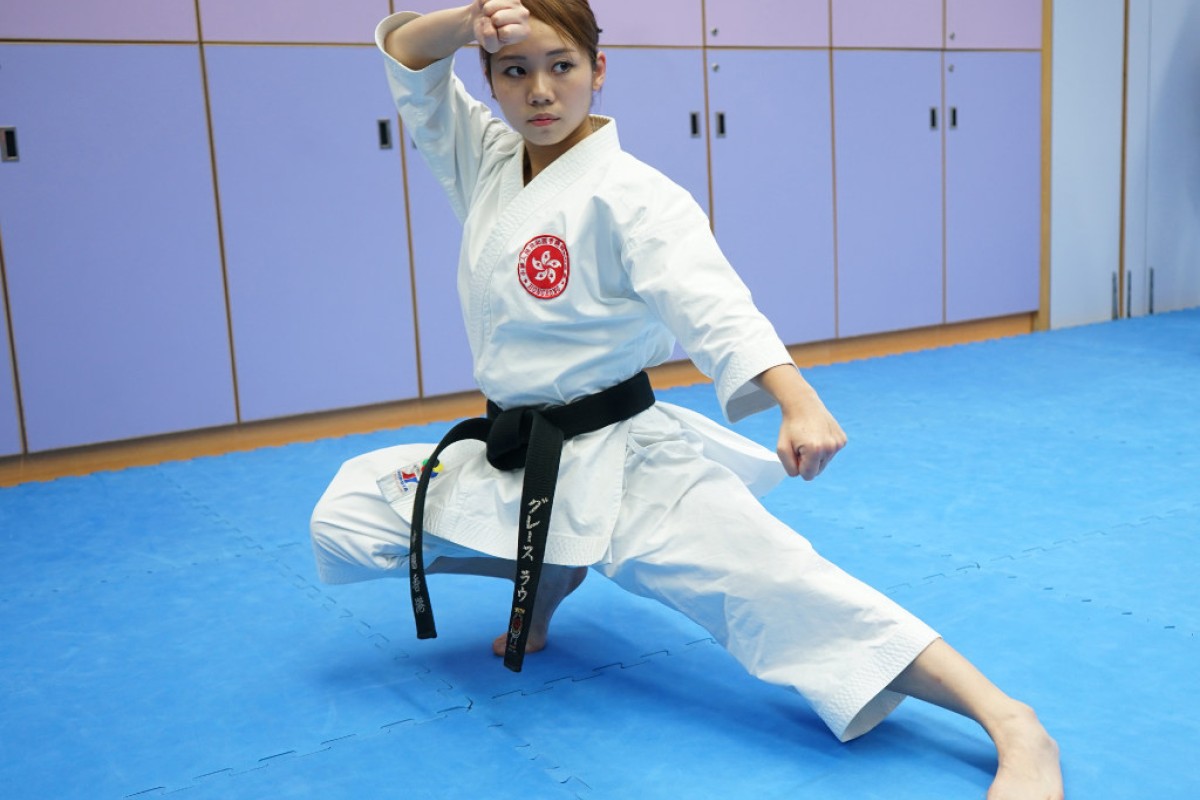
HK's Grace Lau's can-do karatedo spirit means she's fourth in World Karate rankings
The 25-year-old Hong Kong Baptist University graduate might have taken the top spot at the East Asian Championships last month, but she’s not just stopping there

When you see the word “karatedo”, you probably picture karate chops, flying kicks and full-on contact. “It’s another type of karate,” explains Hong Kong’s karatedo athlete Grace Lau Mo-sheung, who is doing some basic stretches before teaching the juniors. “What I’m doing, the kata [an individual event where athletes perform a series of movements], is a performance. There’s no contact, and you can’t just explode [into movement] like crazy. There has to be a rhythm.”
For those unfamiliar with the sport, karatedo is a Japanese martial art that focuses on striking techniques and is a path to self-knowledge. Lau is very intense as she describes her craft. “Kata movements focus on kumite [meaning “grappling hands”, techniques used when facing adversity] – the transition from attack to defence. Some of it is powerful, and some of it is elegant.”
The 25-year-old, who won gold at the East Asian Championships in Macau last month, is now fourth in the World Karate Rankings. “I screamed really loudly after they announced my win. I wasn’t expecting to react like that but I’ve lost to this opponent before, so it was a big win for me,” explains Lau, who posted a podium photo on her Instagram.
As well as being the East Asian champion, Lau placed first in the Karate World Cup in Slovenia, and won a silver medal at the Asian Karatedo Federation championship held in Yokohama, Japan, in 2015.
These victories, however, aren’t the only stand-out memories for Lau. “My brother [karatedo athlete Lau Chi-ming] and I were the only Hong Kong representatives at the 2012 World University Championships – one of my first internationals – so there was a lot of pressure. I came third,” she says.
“And at the Asian championships in 2014, I placed second after beating a Japanese opponent. Then I knew that I could compete in the top level.”
Lau says karate athletes respect Japan because of its rich history in the sport. “In the eyes of the judges, Japan is right at the top, and that’s why it feels so amazing when you win against a Japanese opponent,” she says.
Lau took up karatedo in 2002, where she met coach Fung Wa-keung. After years of studying the art of kata, she became a full-time athlete two years ago after graduating from Hong Kong Baptist University.
“He [Fung] doesn’t say much about the easier match-ups, because he has confidence in me and our game plan. He only has something to say about the tough matches,” she jokes, adding that her coach constantly encourages her to be confident and passionate, especially when competing overseas.
But Lau doesn’t need a reminder about being passionate. “I put my own style into my kata. If my routine clashes with the opponent’s, I’ll add something unique – in my case, speed rather than power – to demonstrate the best parts.” She adds that kata competitors should focus on themselves, not the opponent. “At this level, you have to be flawless.”
Lau admits to having struggled with nerves and pressure early in her career, especially in the run-up to the bigger competitions. “If I fail, I feel like I’ve failed the whole of Hong Kong’s female kata scene.”
Now dubbed “the goddess of karatedo” by Chinese newspapers, Lau is set to take her scintillating form to the biggest stages. “I want to win a medal at next year’s Asian Games [in Indonesia]. As for my long-term goals ... it’s got to be the 2020 Tokyo Olympics, and any international championships. They are all very important to me.”
Edited by Ginny Wong
